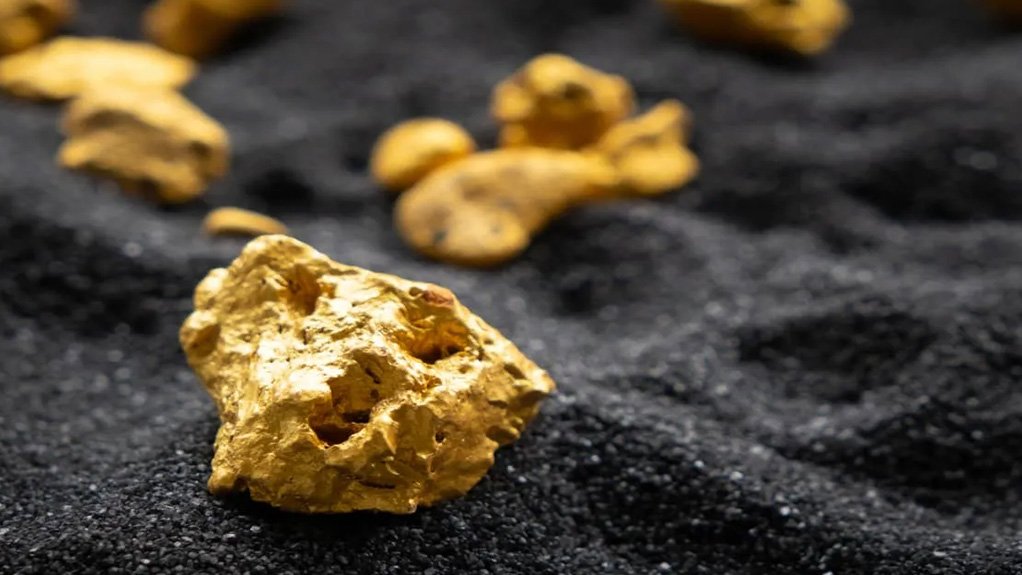Activated carbon, plant optimisation in focus at gold conference
Much focus was placed on the latest advances in the use of activated carbon in the gold recovery process at the Go For Gold Conference, held at Gold Reef City, in Johannesburg, this week.
The conference, which Mining Weekly attended, delved into various technical aspects of the gold recovery process, with expert-led sessions covering a range of topics on activated carbon and gold beneficiation plant optimisation.
In gold winning, the gold cyanide complex is extracted using activated carbon. For this application, coconut shell-derived activated carbons are generally considered ideal because of their high hardness, pore structure, excellent adsorption capabilities and good regenerability.
After the ore is crushed and ground, a cyanide solution and water are added to create a slurry that is used in the gold recovery process. This solution frees the gold from the ore. The remaining slurry is then allowed to pass through while the gold particles are absorbed by activated carbon. After that, the gold is extracted from the activated carbon using ethanol.
At the conference, activated carbon producer and event co-sponsor Jacobi global gold recovery applications manager and Asia Pacific and South Africa sales director Pierre-Eric Blanc and manufacturing VP Mark Cutten spoke about the complexities of the coconut shell supply chain.
Blanc noted that the South African gold mining industry was the world’s largest single consumer of the company’s coconut-based activated carbon products, using 3 000 t/y out of a total of 20 000 t/y supplied globally.
The entirety of Jacobi’s supply of coconut shells comes from five South-East Asian countries and is responsible for about 70% of the production cost.
When asked by a delegate why the company did not source some of the shells from Africa to bring the source closer to market, Cutten said that, aside from the fact there is not enough coconut growth in Southern Africa owing to an unfavourable climate, the problem lay with there not being enough local offtakers for other parts of the coconut in other industries.
After Jacobi, fellow event sponsor and process materials, specialty chemicals, and adsorbent producer UDEC technical metallurgist Bonginkosi Khoza gave a presentation on the importance of acid washing, during which he compared practical real-life processes with theory to determine what could be learned by the industry.
UDEC offers various kinds of activated carbon grades to the gold industry, with hundreds of standard products in granular, powdered, and extruded forms made from diverse raw materials such as coconut shell, various grades of coal and wood.
Water treatment company Watercare Mining operations GM Brentton Fossati spoke to delegates about the innovative gold recovery technology that the company has developed and is currently scaling at several gold plants.
Additionally, screening and process equipment manufacturer Multotec screening media VP Francois Fouché provided some insights into interstage screens used in carbon circuits.
To round things off, commercial mineral processing and metallurgical testwork company Maelgwyn laboratory manager Sonestie Janse van Rensburg spoke about the role that laboratory evaluations played in supporting big outcomes and the vital contribution they made to operations.
The conference also featured several case studies on successfully running gold recovery operations in South Africa, including at gold miner Harmony Gold’s Doornkloof plant and Pan African Resources’ Elikhulu plant. Both of these operations have consistently achieved solution losses below 0.003 ppm.
Article Enquiry
Email Article
Save Article
Feedback
To advertise email advertising@creamermedia.co.za or click here
Comments
Announcements
What's On
Subscribe to improve your user experience...
Option 1 (equivalent of R125 a month):
Receive a weekly copy of Creamer Media's Engineering News & Mining Weekly magazine
(print copy for those in South Africa and e-magazine for those outside of South Africa)
Receive daily email newsletters
Access to full search results
Access archive of magazine back copies
Access to Projects in Progress
Access to ONE Research Report of your choice in PDF format
Option 2 (equivalent of R375 a month):
All benefits from Option 1
PLUS
Access to Creamer Media's Research Channel Africa for ALL Research Reports, in PDF format, on various industrial and mining sectors
including Electricity; Water; Energy Transition; Hydrogen; Roads, Rail and Ports; Coal; Gold; Platinum; Battery Metals; etc.
Already a subscriber?
Forgotten your password?
Receive weekly copy of Creamer Media's Engineering News & Mining Weekly magazine (print copy for those in South Africa and e-magazine for those outside of South Africa)
➕
Recieve daily email newsletters
➕
Access to full search results
➕
Access archive of magazine back copies
➕
Access to Projects in Progress
➕
Access to ONE Research Report of your choice in PDF format
RESEARCH CHANNEL AFRICA
R4500 (equivalent of R375 a month)
SUBSCRIBEAll benefits from Option 1
➕
Access to Creamer Media's Research Channel Africa for ALL Research Reports on various industrial and mining sectors, in PDF format, including on:
Electricity
➕
Water
➕
Energy Transition
➕
Hydrogen
➕
Roads, Rail and Ports
➕
Coal
➕
Gold
➕
Platinum
➕
Battery Metals
➕
etc.
Receive all benefits from Option 1 or Option 2 delivered to numerous people at your company
➕
Multiple User names and Passwords for simultaneous log-ins
➕
Intranet integration access to all in your organisation





















